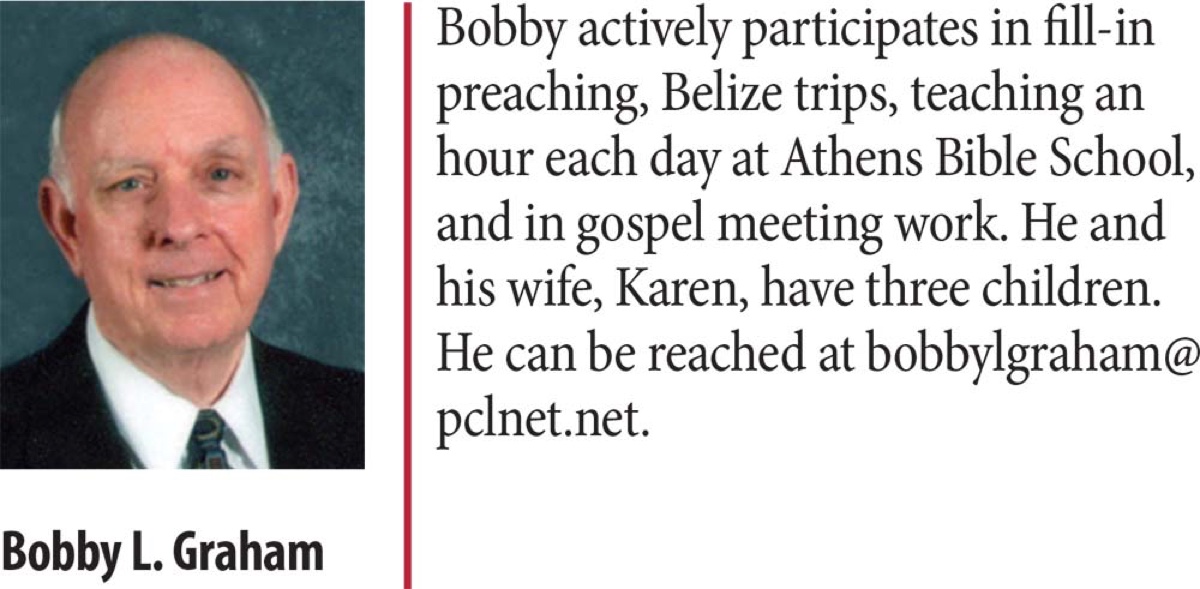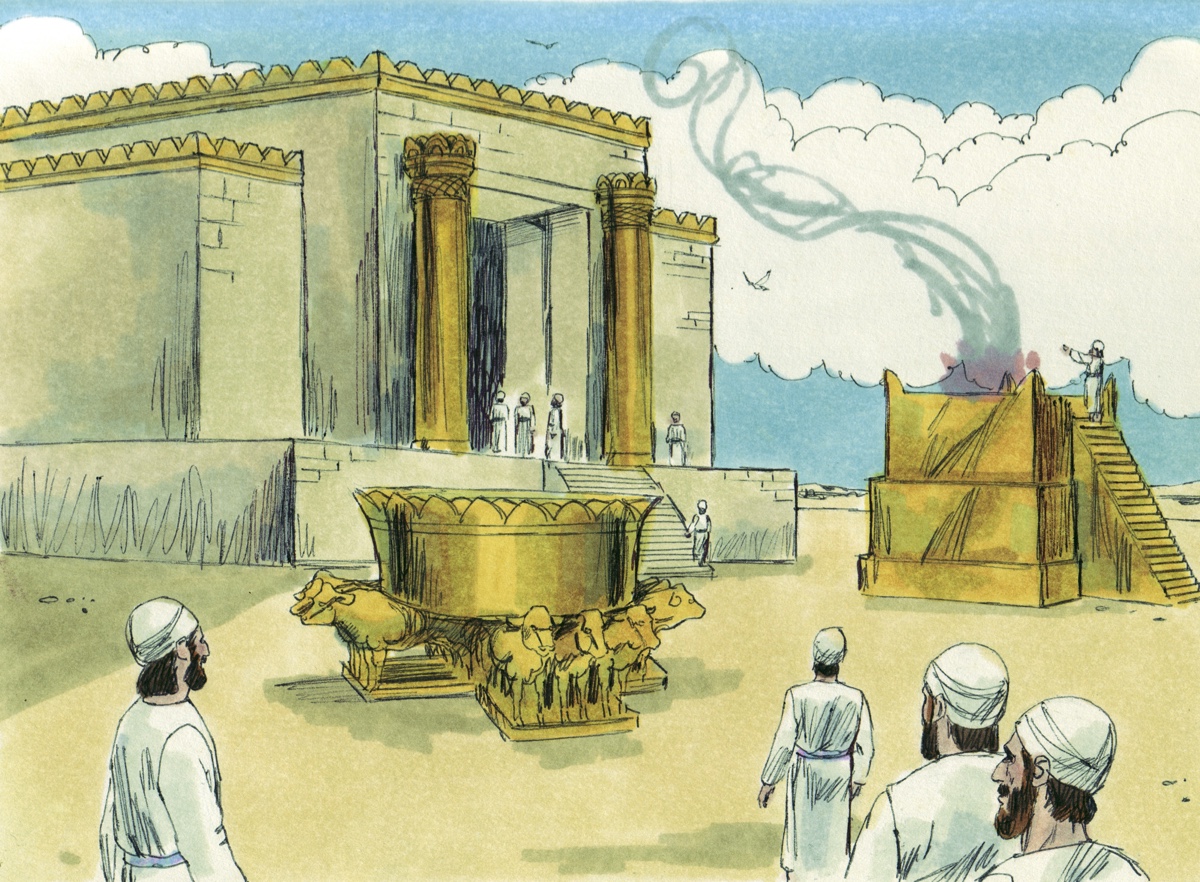
by Bobby L. Graham
Does 2 Samuel 7:14 refer to Jesus Christ or Solomon? This passage has to be referring to Solomon because Christ committed no sin. I have heard quotations that seem to say this is referring to Christ.
To set forth the total quotation from God through Nathan the prophet, consider 2 Samuel 7:12-16, which says:
When your days are fulfilled and you rest with your fathers, I will set up your seed after you, who will come from your body, and I will establish his kingdom. He shall build a house for My name, and I will establish the throne of his kingdom forever. I will be his Father, and he shall be My son. If he commits iniquity, I will chasten him with the rod of men and with the blows of the sons of men. But My mercy shall not depart from him, as I took it from Saul, whom I removed from before you. And your house and your kingdom shall be established forever before you. Your throne shall be established forever.
In reading the surrounding context, one observes that God was promising to build a house for David (v. 11). This would not be the house which David wished to build for the Lord, which was later constructed by Solomon. This would be a different kind of house, identified in the quoted passage with the word “seed,” meaning his offspring, or household coming from his descendants. Jehovah then changed His focus to the house which David’s son would later build. Again, in verse 16, the Lord turned back to the house which He had in mind for David’s offspring: “Your house and your kingdom shall be established forever before you. Your throne shall be established forever.” This prophecy ultimately is fulfilled in the church of Jesus Christ.
Notice that verse 16 associates the terms “your house,” “your kingdom,” and “your throne” with each other, making them parallel. In verse 18, David uses “house” to mean his ruling family/house/household, later showing its permanence in rule beyond the time of David’s life. The sweet psalmist’s last words are recorded in chapter 23, thought by some to be a song. The words of 23:5 clarify that David’s own immediate family did not measure up to the divine standard God had established due to their various sins (which are recorded in chapters 11-18). As a result, God was not then causing it to grow/increase according to His promise. He would fulfill it later.
Having discussed the identity of the house of David mentioned in 7:12-16, now we can move to identify the one about whom our questioner asked in verse 14: “I will be his Father, and he shall be My son. If he commits iniquity, I will chasten him with the rod of men and with the blows of the sons of men.” This is how I reconciled the matter: The fourteenth verse proves that David’s seed, in this context, includes his closer offspring (committed iniquity and then chastened), but also includes the Messiah (who did no sin and never chastened). Similar Old Testament prophecies and their New Testament fulfillments (Heb. 1:5) leave me with no doubt that the statement about committing iniquity has to refer to David’s physical offspring, i.e., Solomon and his other descendants. On the other hand, I have no doubt that the statement about setting up the kingdom forever has reference to Christ, the only ultimate fulfillment. We have a case of a prophecy being fulfilled at different times or on different levels. Of course, this means that Solomon was the beginning of its fulfillment, with Christ being the complete/ultimate realization of this prophecy. There are some other Old Testament prophecies of the same sort—that is, fulfilled on different levels.



